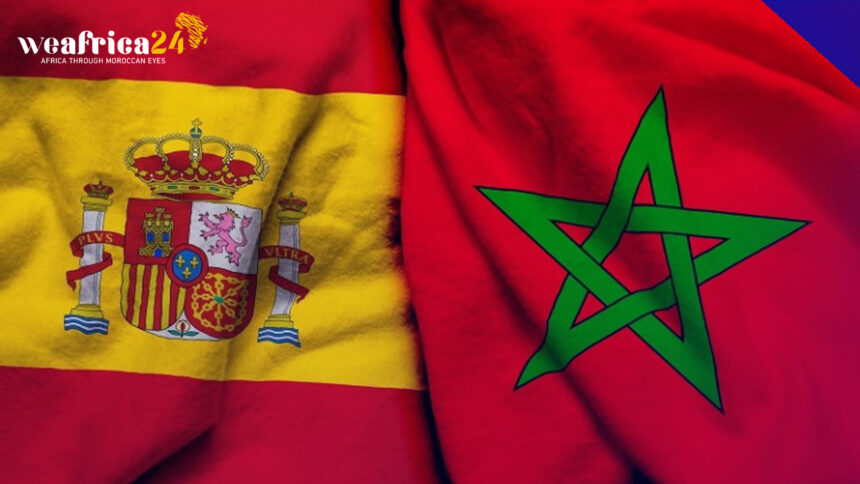In the dynamic landscape of international relations, the year 2023 marked a significant turning point for Morocco-Spain ties. The meeting in Rabat in April of the previous year between King Mohammed VI and President Pedro Sanchez laid the foundation for a new chapter, signaling the end of a diplomatic dispute and ushering in an unprecedented level of cohesion between the two neighboring nations.
One of the pivotal moments shaping this renewed relationship was Sanchez’s historic visit to Rabat. Leading a high-level ministerial meeting, the Spanish president, alongside his Moroccan counterpart Aziz Akhannouch, signed 19 cooperation agreements spanning diverse fields such as migration, social security, water, transportation, environment, population, energy, sustainable development, agriculture, sports, education, vocational training, small businesses, science, culture, employment, health, and tourism.
This high-profile gathering, a part of the so-called “honeymoon” month between the neighboring countries, marked a crucial step forward in the roadmap outlined by Rabat and Madrid in April of the previous year. The significance of this meeting also unfolded in the context of Sanchez’s initiated “reconciliation” efforts, acknowledging Morocco’s sovereignty over the Western Sahara and Spain’s support for the autonomy proposal – a move aimed at forging new horizons in bilateral relations.
Furthermore, Sanchez’s choice to spend his summer vacation in Marrakech added another layer to the evolving narrative of Moroccan-Spanish relations in 2023. Despite sparking controversy and criticism, the Spanish leader’s decision to relax in the Red City sent a clear message about the positive trajectory of relations between the two nations, transcending political differences and demonstrating a personal commitment to fostering understanding.
The Spanish general elections in July were closely monitored by Moroccan authorities, especially in light of concerns about a potential shift in the political landscape. The victory of the conservative People’s Party and the second-place finish of the Socialist Workers’ Party, under Sanchez’s leadership, alleviated Moroccan apprehensions. Sanchez’s confirmation for a second term as Spain’s president, coupled with the omission of the Western Sahara issue in the coalition agreement between the Socialist Workers’ Party and the left-wing coalition “Sumar,” paved the way for a smooth continuation of warmth and harmony between the neighboring countries.
As the year drew to a close, the Spanish Foreign Minister, Jose Manuel Albares, undertook a diplomatic visit to Morocco in mid-December. This visit, representing Spain’s efforts to enhance political, economic, cultural, and cooperative ties with Morocco, underscored the commitment to strengthening relations. Meetings with Moroccan Foreign Minister Nasser Bourita and other officials aimed to deepen collaboration and understanding.
In summary, the year 2023 stands out as a remarkable chapter in the history of Moroccan-Spanish relations, marked by diplomatic initiatives, high-level meetings, and personal gestures that have collectively contributed to the consolidation of a robust and improved partnership between these neighboring nations. The evolving dynamics between Morocco and Spain serve as a testament to the resilience of diplomatic efforts and the potential for collaborative growth in the years to come.







